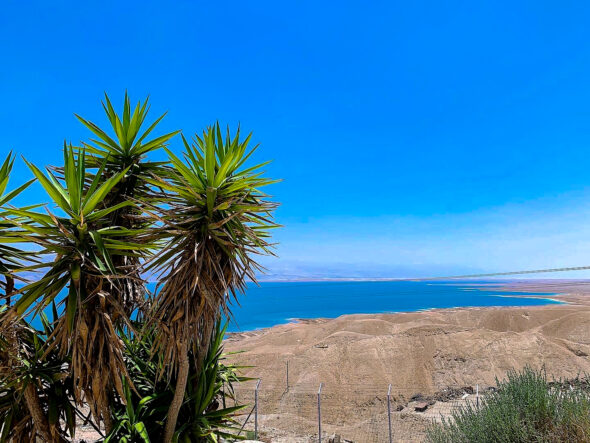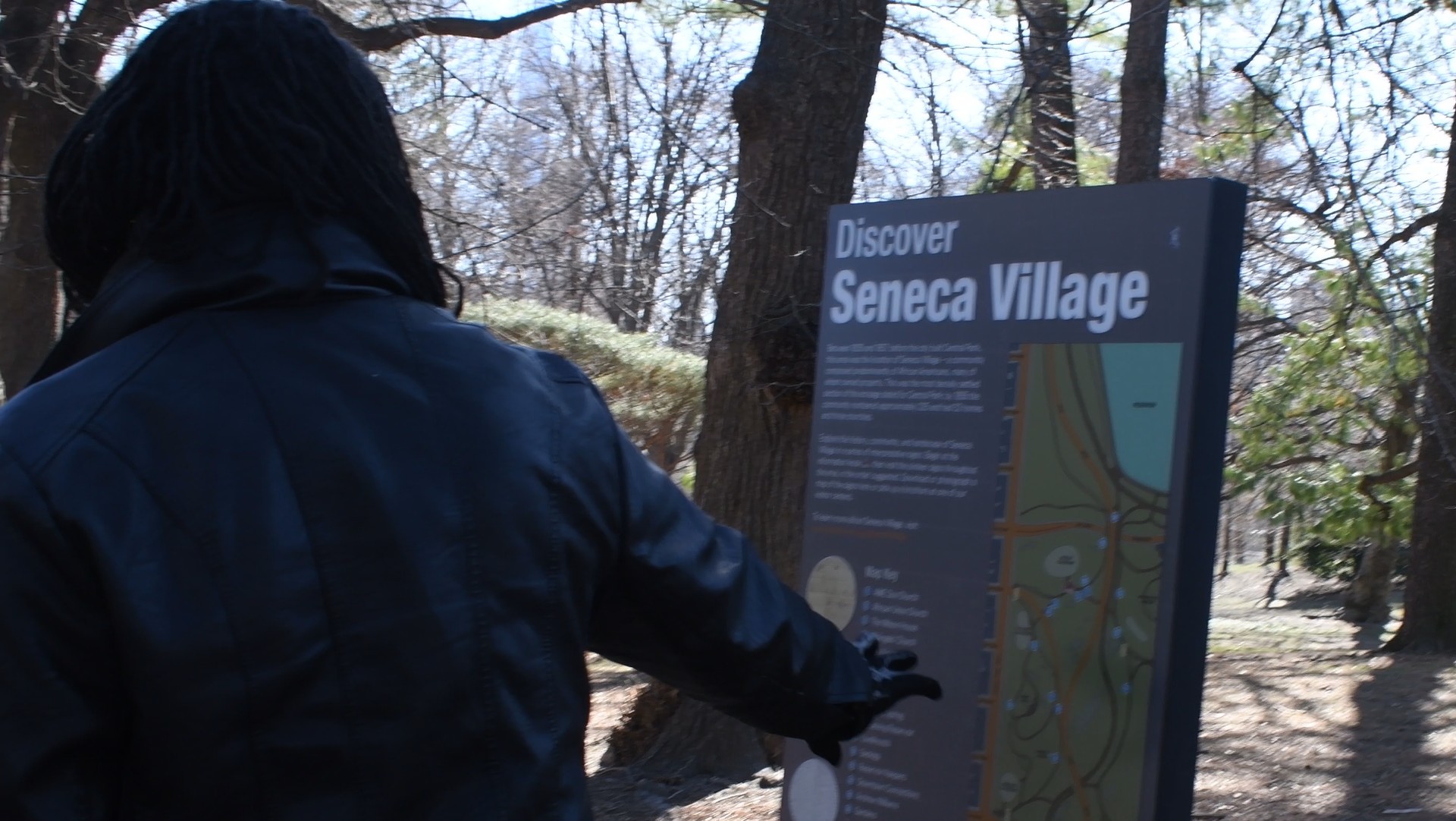I boarded a flight to Tel Aviv on April 13 with the intent of visiting my sister for ten days. I ended up renting a tiny apartment on the beach with two male strangers, and staying for the next four months.
Surrounded by the Mediterranean Sea, ancient architecture and the aroma of freshly baked pita on every street corner, I knew shortly after I arrived that I would stay a while. The tight knit community of warm, laid-back, yet distinctively blunt neighbors felt comforting in its familiarity and reminded me of my Mediterranean roots. Fairly quickly, I began to recognize the baristas that served me coffee everyday, the guitar players that played every evening on the boardwalk and the locals that I passed on my daily walks. It made it easy to press pause on relationships back home and kept me from ever feeling lonely.
My trip to the Middle East may sound like a glamorous Gen-Z rewrite of Eat, Pray, Love — but I have no summer romance to report and while I did eat and pray, I also worked 80-hours a week. Still, the time away from my usual environment, social group and cultural expectations allowed me to release my rigid mindset and expectations about my life back home. When I initially booked my flight, I had just moved back home for the first time, started a new job that I didn’t resonate with and gone through a breakup. Instead of embracing the early start to my career, I removed myself from my stagnant day-to-day routine that was turning me bitter and immersed myself in Mediterranean culture. This transformed my perspective and helped me return with a new sense of purpose and clarity.
My post-graduation existential crisis was hardly revolutionary — City Mental Health conducted a study in 2021 that revealed 49% of college graduates feel down after they finish their studies. The pressure to land a job, like it and then commit to it every day for the next couple years can be overwhelming for many. To make matters worse, people are bombarded with the news of everyone else’s achievements on social media — proposals, job offers and grad school admissions. Rather than hope that the wheel of fortune spins their way before burning out, young people that are struggling to find direction should escape their environment and social circle for a brief period to gain a fresh perspective. This can help provide insight into their goals and also give them the mental break they need to feel more driven when they return.
While older generations sometimes view this path as idealistic or indicative of a poor ethic, Andrew Jacobs, a health and science reporter at The New York Times, demonstrates the value of travel. In 1985, Jacobs decided to take a year off of college to live in China and travel through Asia. At the time, the AIDS crisis had recently emerged and the Cold War was ongoing. Jacobs says that he needed a change of scenery and environment.
“It was all there when I came back. The friendships and relationships, sure they get put on hold,” Jacobs said. “But in return I would say you get a very rich experience and it sort of alters your world views.”

June 2022, Tel-Aviv Beach. Evening sunset at Tel-Aviv Beach in Israel.
Jacobs had such a positive experience that he returned to China after he graduated to teach English for a year and then continued to travel for another year working a range of different jobs. During his time abroad, he studied Mandarin, Chinese, Japanese, and Nepalese. He also worked in varying roles and spent his time learning about the different cultures in the places he traveled.
Taking a break doesn’t—and shouldn’t—equate to a vacation. It should resemble a journey that leads to the next chapter in life.
With remote work, many employees now have the opportunity to live wherever they want. Even if some workplaces don’t allow that level of freedom, a long list of companies offer fully virtual work. Working at a restaurant or as an au pair exist as other options that allow for deeper cultural immersion in a foreign location. Many who take gap years also do community service or specific programs. Without some kind of job or purpose abroad though, there is less merit to leaving the country for an extended period of time.
This change in scenery doesn’t need to occur at an international location but aside from potentially learning a new language, staying in a new country for an extended period of time has many benefits. In a 2020 survey by National Civility Community Corps (NCCC), the gap year organization discovered that 71%of people who did a gap year abroad experienced positive improvements with adapting to new situations. Additionally 66%of respondents noticed they responded better to unexpected challenges and also worked better with people different than them.
Taking a gap year or few months away isn’t just about traveling abroad, it’s about removing oneself from a space or social environment that no longer fuels creativity. Sometimes, looking outside is necessary to fully look within and figure out what works and what doesn’t. Staying in the same location and social circle can sometimes block productivity and inspiration because of the temptation to compare oneself to everyone around them.
Residents in foreign countries tend to have more access to travel. Europeans are known to casually take trains across borders and the majority of Israelis travel for 6-months after they finish their mandatory army service. In the U.S., travel is viewed more as a luxury and for good reason—flights to Europe, Asia and the Middle East remain out of reach for many Americans. With that said, many cities offer a low-cost of living and by staying in hostels and sticking to a food budget, these trips don’t have to be extravagant. By sticking to a limited spending plan, travelers may allow themselves to further immerse in the culture.
The benefits to doing so can even be measured through improved academic achievement. According to a study from Middlebury, students who took a gap year performed higher academically than those who didn’t. In a survey conducted by the Gap Year Association, 84%of respondents reported feeling more academically motivated after their year off. Additionally, 81% said that their gap year ended up influencing their career paths. Thus, the separation from everyday monotony can actually push someone further along than if they stay consistent yet stagnant in their current role.
This was the case for Jacobs, who was at a point where he felt he needed to leave his home in New York City and experience a new location. As Jacobs watched different political events unfold around the world, he also discovered his appetite for journalism, which eventually led him to his current role at The New York Times. Looking back, he says his time abroad was essential to his career.
“I was definitely much more outward focused in terms of the world,” Jacobs said. “If you don’t leave the U.S., you get sort of insular in your focus. It opened my eyes to, it’s kind of cliche, but the wide world. It helped develop this interest in Asia that persisted for a long time. It shifted my world view a little. I saw people in Asia as friends.”

July 2022, Dead Sea. Views above the Dead Sea.
As a journalist, Jacobs finds that living internationally is crucial to the job. However, he views living abroad as a requisite for life because of the way it expands perspectives. Without taking a break early on in his or her career, a person may not have any idea what they are looking for in a job or missing in themselves.
Psychologists now refer to the age group of 18-25 as another phase of development, called ‘Emerging Adulthood’ which marks the transitional period between the ages of 18-25. With such little life experience, the job market often works like a lottery for recent college graduates and leaves many young people feeling dissatisfied with the industry they chose and the occupation they landed with. While a strong work ethic is a vital component of any success story, working without a sense of purpose or direction most likely won’t deliver the American dream.
Even though the word ‘escape’ carries a negative connotation for some, sometimes escape is necessary. Transporting to a different location allows people to gain new meaning in their lives by obtaining a clearer picture of what wasn’t working before. By seeing new places, meeting different kinds of people and experiencing struggles that cross unchartered territory, the opportunity to grow arises.
When life gets hard, I leave, I process what went wrong, and I formulate a plan for moving forward. Perhaps you should try this out too.


